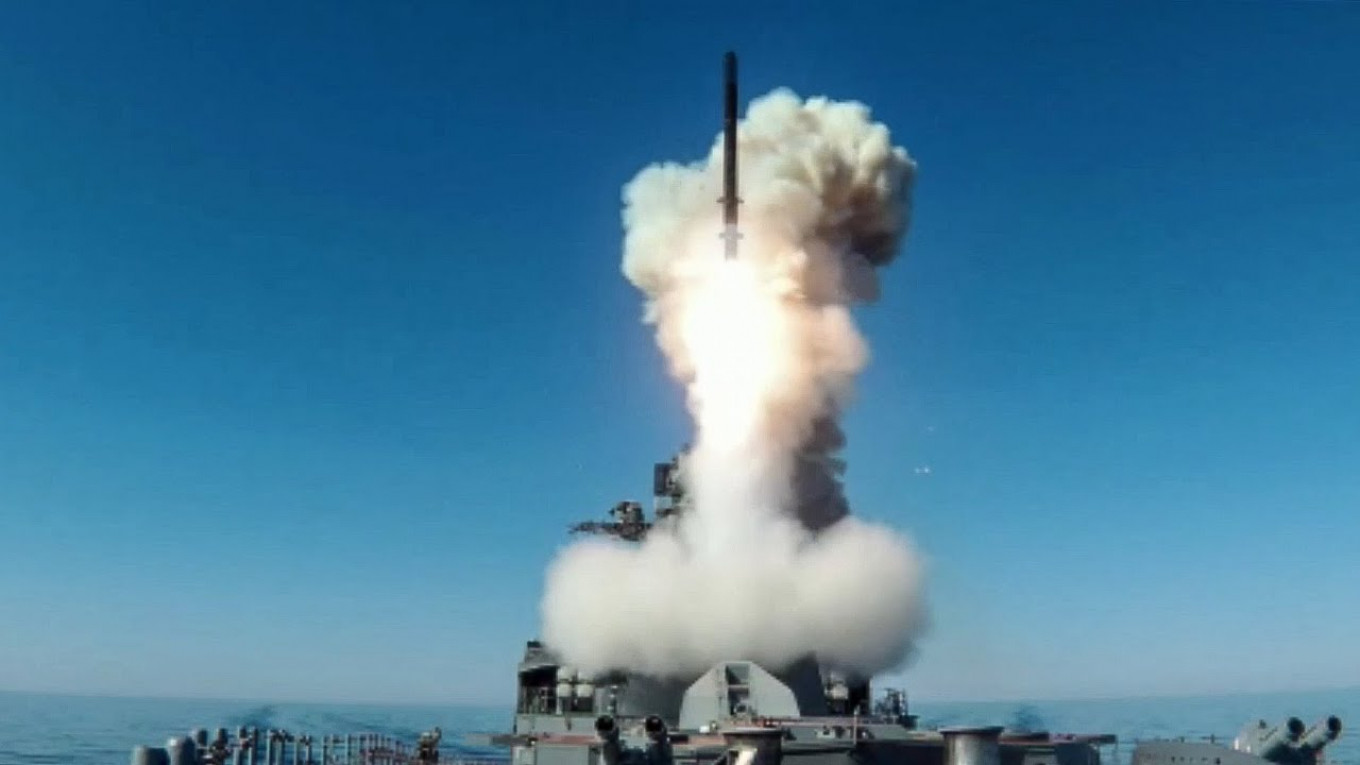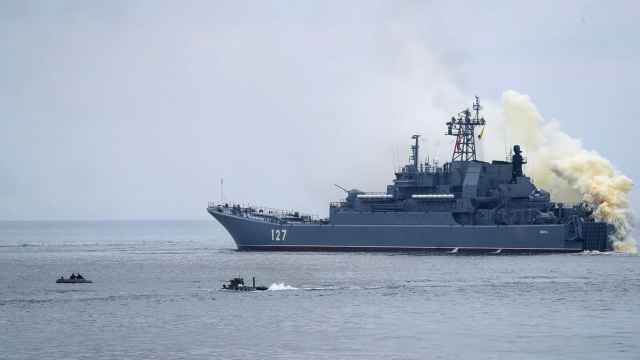The Russian Navy has for the first time fired long-range Kalibr cruise missiles on a ground target in the Sea of Japan, the Russian military announced Tuesday.
The Pacific Fleet’s statement follows concerns voiced by U.S. defense officials that the Kalibr, which will for the first time allow Russian warships to conduct long-range strikes against land targets, would offset U.S. advantages in the Pacific region.
“Today, the Pacific Fleet frigate Marshal Shaposhnikov for the first time launched the Kalibr cruise missile on a ground target from the waters of the Sea of Japan,” the Russian military said.
The cruise missile hit its coastal target at a range of more than 1,000 kilometers, it added in an announcement on the Defense Ministry’s website.
The head of the U.S. Indo-Pacific Command, Adm. Phil Davidson, testified to Congress last month that Russia will begin fielding Kalibr cruise missiles across its Pacific Fleet in 2021.
According to his reported written testimony, the missiles will give the Russian military “substantially increased anti-ship capabilities and the ability to conduct long-range strikes against land targets for the first time.”
Davidson added that Russia is upgrading its Pacific forces with advanced fighters and longer-range bombers, as well as air defense and land-based anti-ship cruise missiles.
“These improvements are designed to restrict access to regions of the Pacific Ocean near Russia’s coast, while simultaneously expanding Russia’s ability to project power across the region and into the Arctic,” he was quoted as saying.
Russia has previously fired Kalibr cruise missiles from Mediterranean Sea-based vessels at militant targets in Syria to support regime army offensives.
President Vladimir Putin said in 2018 that Russian warships armed with Kalibr missiles would be on permanent standby in the region to counter the terrorist threat in Syria.
A Message from The Moscow Times:
Dear readers,
We are facing unprecedented challenges. Russia's Prosecutor General's Office has designated The Moscow Times as an "undesirable" organization, criminalizing our work and putting our staff at risk of prosecution. This follows our earlier unjust labeling as a "foreign agent."
These actions are direct attempts to silence independent journalism in Russia. The authorities claim our work "discredits the decisions of the Russian leadership." We see things differently: we strive to provide accurate, unbiased reporting on Russia.
We, the journalists of The Moscow Times, refuse to be silenced. But to continue our work, we need your help.
Your support, no matter how small, makes a world of difference. If you can, please support us monthly starting from just $2. It's quick to set up, and every contribution makes a significant impact.
By supporting The Moscow Times, you're defending open, independent journalism in the face of repression. Thank you for standing with us.
Remind me later.






